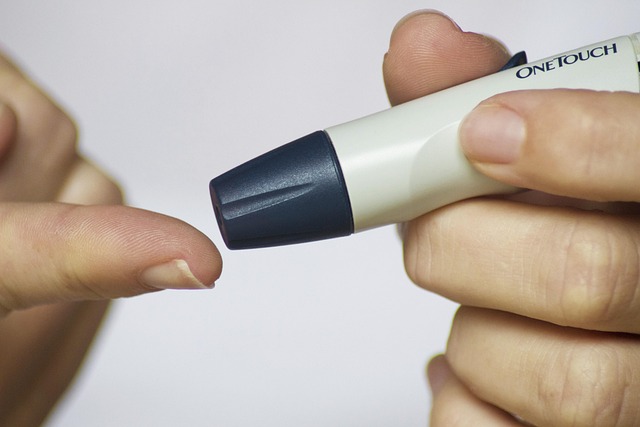Vitamin deficiencies, common yet often overlooked, can be proactively managed through private blood tests that identify specific nutrient gaps. These tests, detecting crucial vitamins like D, B12, and C, offer personalized insights to guide tailored interventions such as dietary adjustments or supplements. Early identification through 25(OH)D, TSH, and serum ascorbic acid tests is key to maintaining optimal health, ensuring individuals can take charge of their nutritional well-being with professional guidance and regular monitoring.
Private blood tests are transforming how we identify vitamin deficiencies, offering a convenient and personalized approach to healthcare. Understanding vitamin deficiencies and their impact is crucial in today’s fast-paced world. This article delves into the role of private blood tests in accurate diagnosis, explores common deficiencies and corresponding tests, and guides readers on interpreting results for informed next steps. Discover how these tests can empower you to take charge of your health.
- Understanding Vitamin Deficiencies and Their Impact
- The Role of Private Blood Tests in Diagnosis
- Common Vitamin Deficiencies and Corresponding Tests
- Interpreting Results and Next Steps
Understanding Vitamin Deficiencies and Their Impact
Vitamin deficiencies are common health issues that occur when your body doesn’t have enough of certain essential vitamins. While we often associate a balanced diet with vitamin intake, various factors can lead to deficiencies, including age, medical conditions, medication side effects, and lifestyle choices. Understanding these deficiencies and their impact is crucial for maintaining optimal health.
Each vitamin plays a unique role in your body’s functions. For example, Vitamin D aids in calcium absorption, crucial for bone health, while Vitamin B12 contributes to nerve function and red blood cell formation. A Blood test for vitamin deficiency is a simple yet effective way to identify these issues early on. By detecting low levels of specific vitamins, individuals can take proactive measures to improve their health, such as adjusting diets, taking supplements, or consulting healthcare professionals for personalized guidance.
The Role of Private Blood Tests in Diagnosis
Private blood tests play a pivotal role in identifying and diagnosing vitamin deficiencies, offering individuals a direct way to assess their nutritional status. These tests provide valuable insights into specific vitamin levels within the body, allowing for personalized healthcare approaches. By analyzing a simple blood sample, medical professionals can detect deficiencies that may go unnoticed through standard dietary assessments or physical symptoms alone.
The advantage of private blood tests for vitamin deficiency lies in their ability to offer precise, actionable data. They help determine which vitamins an individual may be lacking and enable tailored interventions. This proactive approach to healthcare empowers folks to take control of their nutrition and overall well-being, ensuring they receive the necessary supplements or dietary adjustments to address any identified deficiencies.
Common Vitamin Deficiencies and Corresponding Tests
Vitamin deficiencies are common, affecting millions worldwide, and can often go unnoticed until serious health issues arise. Identifying these deficiencies early through private blood tests is crucial for maintaining optimal health. Some of the most prevalent vitamin deficiencies include Vitamin D, B-complex (especially Vitamin B12), and Vitamin C.
For each deficiency, specific blood tests are available. A 25(OH)D test measures Vitamin D levels, crucial for bone health. The TSH test checks for hypothyroidism often linked to low iodine intake, affecting Vitamin B12 absorption. Vitamin C levels can be assessed with a serum ascorbic acid test, essential for immune function and collagen synthesis. These tests enable individuals to take proactive steps by incorporating targeted supplements or adjusting dietary habits to meet their unique nutritional needs.
Interpreting Results and Next Steps
Interpreting your blood test results is a crucial step in understanding your vitamin deficiencies and taking appropriate action. Different vitamins have specific ranges considered optimal for health, so your healthcare provider will compare your test outcomes against these guidelines. For instance, a low level of Vitamin D may indicate a deficiency, whereas a normal range suggests sufficient levels.
Upon identifying vitamin deficiencies, the next step is to consult with a healthcare professional who can advise on treatment options. This might include dietary changes, supplements, or other interventions tailored to your needs. Regular follow-up blood tests are often recommended to monitor progress and ensure that your vitamin levels are returning to optimal ranges.
Private blood tests offer a convenient and effective way to identify vitamin deficiencies, empowering individuals to take control of their health. By understanding common deficiencies and interpreting test results, folks can navigate their health journey with confidence. In today’s digital era, this simple step can lead to significant improvements in overall well-being. Remember that early detection through blood tests for vitamin deficiency is a game-changer, enabling prompt addressing and enhancing long-term health outcomes.
